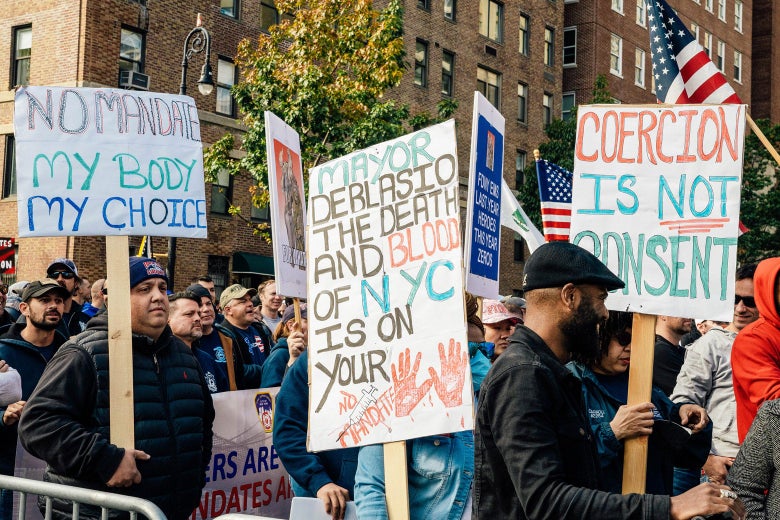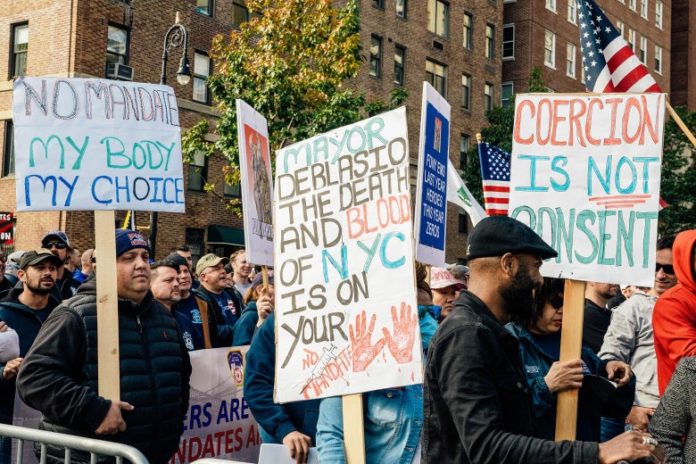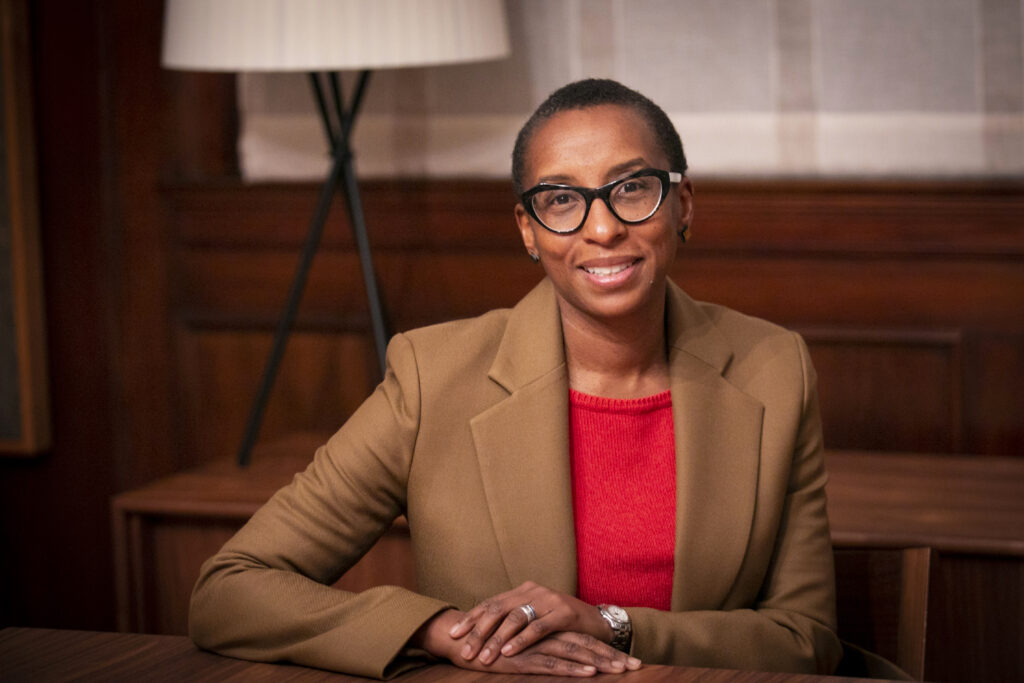
In the 1820s and 1830s, acolytes of New Hampshire autodidact Samuel Thomson fought the imposition of medical licensure requirements, arguing that people should be allowed to pay practitioners who advised lobelia, cayenne pepper, and steam baths to treat sickness rather than those who followed the more orthodox courses of bleeding and dosing with calomel. In the 1890s, philosopher William James campaigned against a medical registration act before the Massachusetts Legislature, arguing that the bill is “too grandmotherly, and goes against the best habits and traditions of our state.” In the 1950s, American right-wingers battled the FDA, arguing it should not have issued public warnings against the use of the Hoxsey treatment, an herbal remedy for cancer developed and marketed by a former coal miner.
Advertisement
All of these activists are, as Lewis Grossman argues in his book Choose Your Medicine: Freedom of Therapeutic Choice in America, part of a deep tradition of American advocacy for what some would describe as “medical freedom.” Today’s COVID anti-vaxxers, Choose Your Medicine shows, are drawing on a deep well of rhetoric developed over a couple centuries of activism on both the left and the right. Maybe that’s why they’ve been so successful.
Advertisement
Advertisement
Advertisement
I spoke with Grossman about left and right convergence on matters of medical freedom, the question of individualism, and why the 1970s and 1980s were a turning point for this movement. Our conversation has been edited and condensed for clarity.
Rebecca Onion: It seems like today’s anti-vaxxers have adopted a lot of the argumentation and rhetoric of past medical freedom movements and are now applying it to the question of vaccines. Is that fair to say—that this is the adoption of rhetoric around therapeutics for a new purpose?
Advertisement
Lewis Grossman: For a lot of people thinking about this today, the idea of medical freedom started with anti-vaccinationism: the demand for medical freedom as a resistance to [government] compulsion. One thing I think my book contributes is a longer historical context, showing how movements by people demanding access to drugs and doctors they wanted have a much longer history than resistance to compulsion does. The first mandatory vaccination was in the mid-19th century, and organized anti-vaccinationism didn’t arise in the United States until the 1880s and 1890s. There’s a centurylong tradition of medical freedom activism before that.
What’s interesting is that many of the same arguments that were invented in the context of demanding access to wanted treatments have been applied to compulsion. These include bodily autonomy and the extraordinary overlap in American thought between medical freedom and religious freedom. And they also include this longtime suspicion that medicine is either being denied to people or forced upon people by corrupt, greedy forces that are basically trying to monopolize the medical market and profit off the bodies of Americans. And you can see all of those strains of argument today in the middle of our pandemic, but you can also see them in 1820 with the Thomsonians.
Advertisement
Advertisement
Advertisement
I hadn’t even thought about the fact that in the 19th and early 20th centuries, “mistrust of mainstream medicine” also meant “mistrust of the government having any hand in deciding how medical science would go.” We sort of presume that this is the way things are—that the government will of course have a certain set of qualifications that they expect drugs to meet in order to be manufactured and sold. But at one point in time, the very idea that the government would be involved in that was seen as an imposition.
You can really see that in my chapter on the proposed National Department of Health in the early 20th century. It seems, from our perspective, like such an uncontroversial thing: Let’s gather all the health-related functions of the federal government and put them in one department. But the perceived alliance between orthodox medicine and the federal government was viewed as an unacceptable danger to Americans’ medical freedom.
Advertisement
And this extended, interestingly, even to one thing that you would think everyone would consider to be a good idea, which is government sponsorship of research into medical problems. People even objected to that, because they thought the direction of research would be driven by orthodoxy, and that alternative approaches would be ignored or suppressed. And you can see echoes of this now, too.
Advertisement
There are strange bedfellows throughout this history—medical freedom movements have long brought together people you could roughly say are on the right and on the left. This is another thing that you can see looking at the COVID anti-vaxxers, though that group tilts more right than left. When has the strange-bedfellows effect been most pronounced?
Advertisement
The partisanship of medical freedom activism—the association between medical freedom and one particular party—is, at least in recent history, a rather new development. It is not new in American history. So for example, the Thomsonian medical freedom movement was very closely associated with Jacksonian democracy. But the strange-bedfellows phenomenon really emerged in the 1970s.
Advertisement
And what was it about the 1970s? We had a bipartisan loss of trust in American establishment institutions, due to many things—the Vietnam War, Watergate, the economic crisis, inflation, the oil crisis. And due to some very specific events, from the Three Mile Island nuclear accident, to the disastrous rollout of the swine flu vaccine in the late 1970s, Americans’ confidence in science and medicine declined along with their confidence in other institutions. And what it did was give reasons for both the right and the left to embrace a new distrust of institutions.
Advertisement
Advertisement
In the medical freedom world, during the 1950s and 1960s, medical freedom activism was almost exclusively a right-wing movement. When the 1970s rolled around, conservatives on the right side of the spectrum already had mistrust and suspicion about establishment institutions, and that only spread broader, leading to the Reagan revolution in 1980. But in the ’70s, many people on the left become more mistrustful of institutions.
A good example of the birth of the strange-bedfellows phenomenon in the 1970s was around Laetrile. That was an alternative cancer treatment derived from apricot pits. Originally, the push for Laetrile was something the John Birch Society led. And in the early 1970s, it became an increasingly bipartisan movement.
Ever since then, whether you’re talking about medical marijuana, AIDS drugs, and so on, there are strange bedfellows to be found. I found this remarkable moment, after the AIDS activists in ACT UP took over the FDA, on the Crossfire TV show. You had Pat Buchanan on the right, who was not a friend to the gay community, telling one of the leading gay activists who was campaigning for access to unapproved drugs, I completely agree with you!
Advertisement
To some extent there is an overlapping impulse between left medical freedom and right medical freedom, based on a general mistrust of the government and establishment institutions, but I would say that they’re slightly different weights of emphasis. I think, especially following the bodily autonomy conversation around the abortion rights movement in the 1970s, bodily autonomy has been a very popular motivation for medical freedom on the more progressive side of the spectrum, and many people on the conservative side of the spectrum might be wary of embracing that, because “my body, my choice” has overtones for them that have to do with abortion. But I have photos of COVID protests with right-wingers where people are wearing “my body, my choice” T-shirts. Generally, on the right, I think the overlap between religious freedom and medical freedom is a more powerful motivation.
Advertisement
Advertisement
Advertisement
Advertisement
Ha! I thought that those anti-vaxxers with “my body, my choice” signs were strictly trolling.
It could be a troll, it could be something earnest, it could be something in between. Maybe they think there’s a certain irony to it, but maybe they’re just trying to rhetorically say, OK, everybody in America on the left says that we should have bodily freedom, so come on, give me mine.
I feel like right now, on the left or liberal side of things, people are talking about medical freedom movements as a problem to solve, something to be persuaded out of: How can we build up trust in the medical establishment? How can we persuade people to believe doctors again? But I wonder what you think. It seems like over the years there’s been tension coming from medical freedom activists in the United States, but also some productive functions that they’ve served. Do you see the impulse to medical freedom as something that must be fixed, or …
Advertisement
With my own personal assumptions and biases, I think within the context of a contagious disease, it is a problem to be solved. The tougher one is, how about in the context of a noncontagious disease? I think I err much more on the side of choice maximization for treatment for noncontagious diseases—not just in terms of rejecting treatment, but in terms of access to treatment—than a classic 1960s pro-government, pro-establishment liberal would probably agree with.
Advertisement
That said, I think it’s a real complex problem that calls into question the tension between individualism and altruism that is also evident in the vaccine debate. Especially when it comes to conventional pharmaceutical products, the main way to figure out whether they work is controlled clinical trials. Those trials require, if they’re simple two-pronged clinical trials, that half of the people enrolled get a placebo or an unsatisfactory existing treatment.
Advertisement
Advertisement
It is striking, if you think about it, that we tell people who are dying that they can’t simply take a drug that they and their doctor think might help them—that they have to go through the trial, where there’s a 50 percent chance you’ll get a sugar pill. Why does society countenance that? The answer is, unless we do that, we have no idea whether or not these drugs are effective. And therefore, restricting access to drugs prior to their approval is actually a communal value, in the same way getting vaccinated is a communal value.
I don’t mean to suggest that the whole clinical trial thing is a simple binary. Especially since the AIDS activists lobbied to alter regulation in the 1980s, there has been a lot more flexibility in the system for people to get access to those drugs prior to approval, and for the drugs to be approved quickly. But the fact of the matter is, I don’t think we’re in a place where every single person in the control arm of the trial is there because they want to help humanity.
Advertisement
Advertisement
Every time I speak to an audience and I ask whether a person dying of cancer should be able to take an unapproved drug that might help them, based on a phase one trial, almost everyone raises their hand. Then I introduce the problem, and I present it a baldly binary fashion, and I say, What if we never get to find out if the drug works? And everyone still raises their hand. A lot of these audiences are progressive-leaning audiences, and they nonetheless feel this way. And it’s interesting to compare your feelings about one issue—the right to treatment—as compared to the other—anti-vaccinationism—and to try to reconcile them.
One more thing I wanted to point out about anti-vaccinationism is that, throughout its history in America, it has been linked to demand for alternative drugs—not just ideologically, but organizationally. So the demand for ivermectin and hydroxychloroquine and the alternative therapies that some right-wing radio hosts are promoting are all tied up with anti-vaccinationism, and that’s not new.
I find it really interesting that a lot of activism in terms of demanding access to unorthodox drugs has focused on alternative medicines in American history. But ivermectin and hydroxychloroquine are approved orthodox medicines for other conditions. This is an interesting turn. On the one hand, those demanding those drugs are sort of embracing the notion of pharmaceutical science. On the other hand, they’re completely rejecting the entire apparatus through which these things are approved for use! I’ll leave that for you as just kind of an interesting puzzle.








